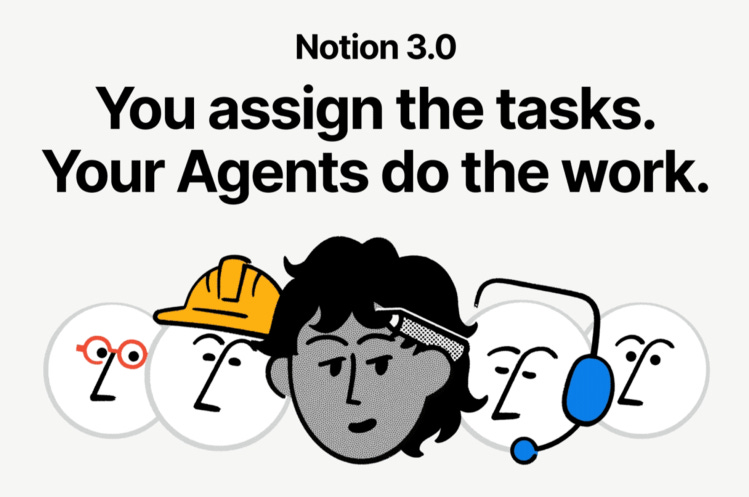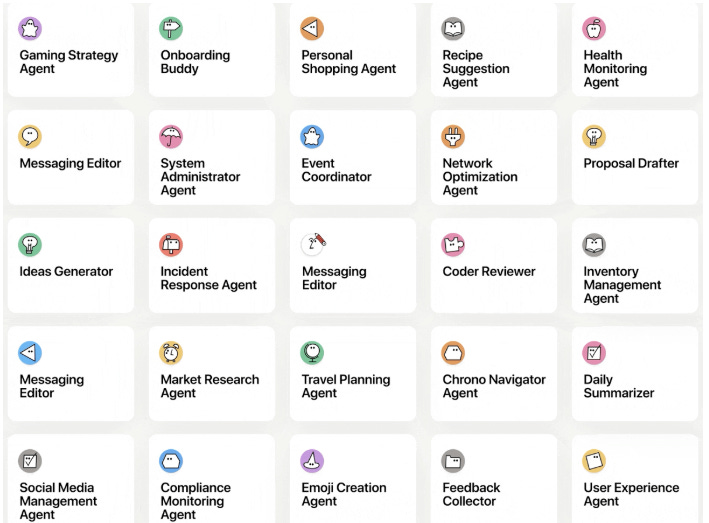Notion ARR Hit $500M, A 3-Person “Mini-Mercor” hit $4.5M ARR in a Year
Factorial ARR Hit $100M, CodeRabbit ARR Hit $15M
Some big milestones:
Factorial ARR Hits $100M
Factorial is an HR software and business management SaaS company founded in Barcelona in 2016 by Jordi Romero, Bernat Farrero, and Pau Ramon. It has surpassed $100M ARR in 2025.
The company serves over 14,000 customers across more than 10 countries and has been growing at a rate of approximately 70% year-over-year.
The platform solves a set of common HR and administrative problems for small and medium-sized businesses, including time tracking, payroll, absence and leave management, shift scheduling, expense control, document management, training, and project management.
It also integrates AI to automate administrative tasks, enabling companies to move away from manual, error-prone processes and allowing HR teams to focus more on strategy rather than paperwork.
CodeRabbit ARR Hit $15M
CodeRabbit, the AI-code review startup founded in early 2023 by Harjot Gill, has hit more than $15M ARR as of September 2025.
It is showing 20% month-over-month growth, reflecting strong product-market fit in the growing market for code review solutions that help developers manage the output of AI-assisted coding.
CodeRabbit’s core offering is an AI-powered code review platform that integrates with developer workflows (e.g. GitHub, GitLab). It helps teams catch bugs, enforce quality gates, reduce the manual load of pull request reviews, and improve code quality via context-aware feedback.
It targets both small teams and large organizations, offering both depth (detailed review, rules, static analyzers) and speed (automated summaries, faster throughput) to mitigate the growing backend work caused by AI code generation.
It recently raised $60 million in Series B funding, bringing its total funding to $88 million, with a post-money valuation of $550 million. It serves over 8,000 customers, including Chegg, Groupon, and Mercury.
Notion hit $500M annual revenue
Notion today announced the release of Notion 3.0, calling it the biggest evolution in the product’s history. At the heart of this update is the AI Agent, with a strong emphasis on automating workflows.
Now, Notion’s Agent can perform virtually anything a human can do inside Notion. It can execute complex, multi-step operations lasting up to 20 minutes across hundreds of pages at once—creating and editing pages, managing databases, and orchestrating execution plans across multiple components of a workspace.
Soon, you won’t just have a single personal Agent—you’ll be able to create an entire custom Agent team to automate different workflows.
This isn’t an AI chatbot that makes generic suggestions. Your Notion Agent tackles real work because it understands your work and can take action. It can complete multiple actions at a time, creating finished pages, databases, and reports directly in your workspace. Just assign the tasks, and your Agent does the work.
Notion explains its product evolution this way: Notion 1.0 gave users a collaborative canvas for documents and knowledge. Notion 2.0 added databases and integrations to help manage workflows.
Now, with Notion 3.0, Notion AI has been taught to use these building blocks—so your Agent can actually get work done. Context, collaboration, and now action—all in one place.
The new Agents come with personalization and memory. The more you use them, the more customized they become—remembering which content to reference, where to archive things, and adapting accordingly.
These “memories” are stored in a user’s profile and can be edited. Each user can already personalize Agents under multiple profiles with different behaviors, and fully automated, customizable Agents are coming next.
The upcoming Agent Teams resemble what I previously described with Bika: a collection of Agents functioning as a team, though Notion hasn’t yet introduced a management layer.
According to Notion, your personal Agent is versatile, always ready to take action when prompted.
With Notion 3.0, you’ll be able to create self-running custom Agents and share them with your entire team.
It’s like having a group of AI specialists, each with domain expertise, running on schedules or triggers—even while you sleep.
Imagine one Agent summarizing user feedback daily, another posting project updates weekly, and another automatically triaging IT requests.
This reflects a broader enterprise trend toward workflow automation in AI. Notion itself is increasingly orienting toward the enterprise market.
Cofounder and COO Akshay Kothari noted that Notion is meeting growing demand for AI tools from major organizations, with customers already including Kaiser Permanente, Mitsubishi Heavy Industries, NVIDIA, and Volvo Cars.
Akshay added that Notion’s sales team will double in size this year and may double again next year, since roughly 90% of Notion’s business comes from multi-user, team collaboration use cases.
On the monetization side, the company has seen a sharp rise in paid AI adoption. Last year, only 10–20% of customers paid for the AI add-on. Earlier this year, that number jumped to 30–40%, and recently it has surpassed 50%.
As a result, Notion is shifting both its pricing and business model to center around AI. For enterprise clients, AI is no longer billed separately but bundled into overall pricing, with fairer models under development. In short, AI is reshaping Notion across product, pricing, and business strategy.
The “Mini-Mercor” built by a 3-person team hit $4.5M ARR in a Year
Beyond Notion, the AI recruiting space is also heating up. Alongside businesses like Mercor and Micro1, which resemble Scale AI for recruitment or offer AI interview coaching, niche AI recruiting platforms are proving viable as well.




